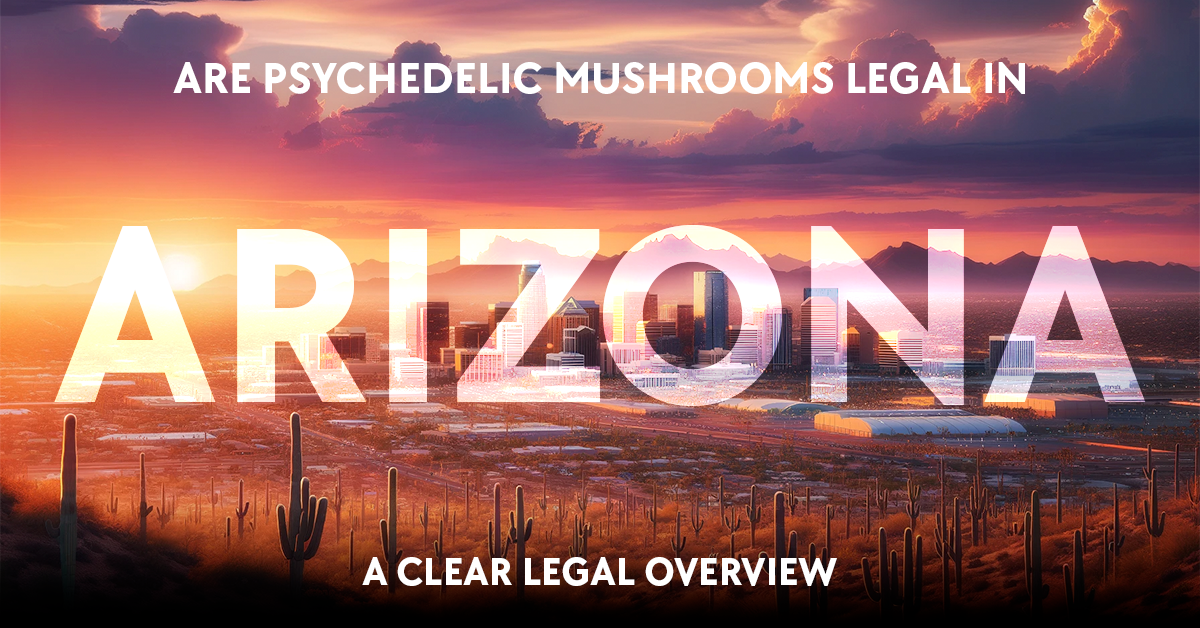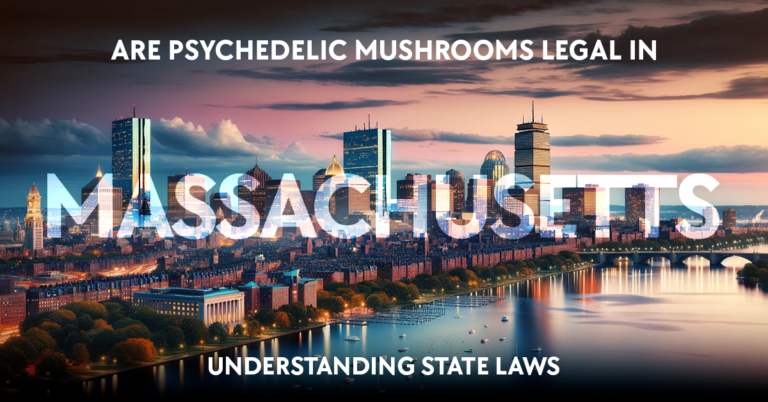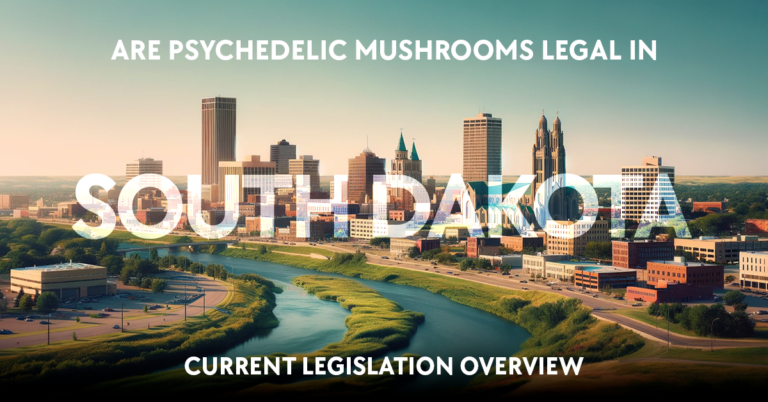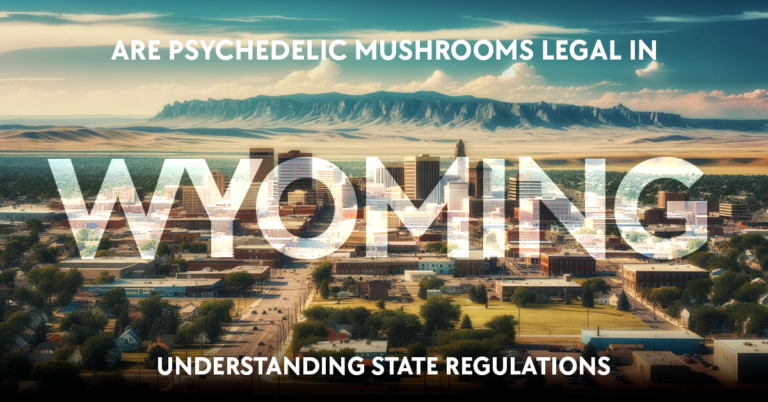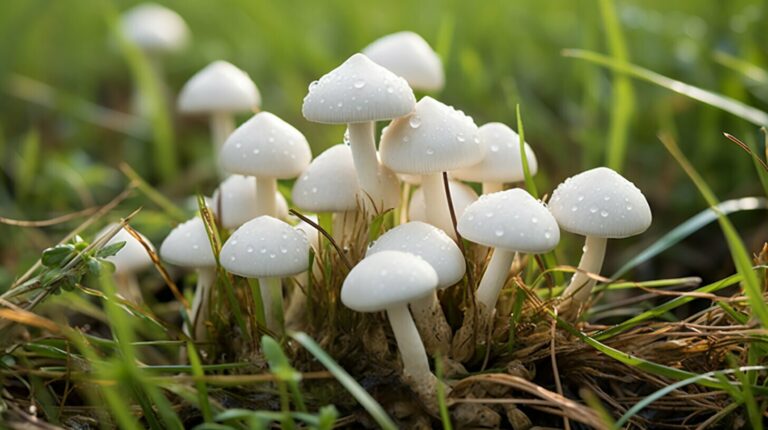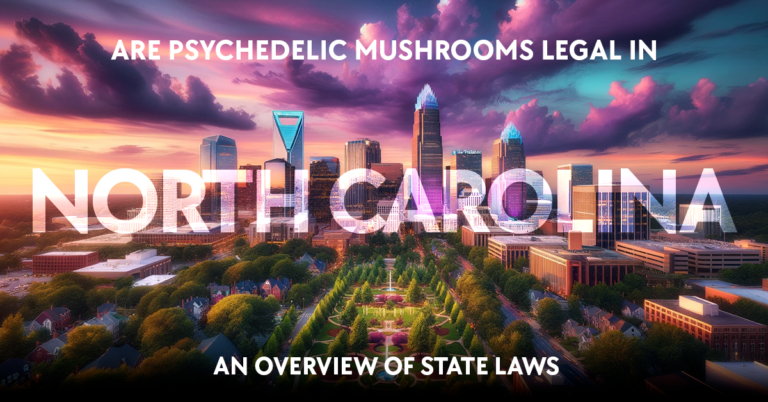Understanding the legal status of psychedelic mushrooms, which contain the active compound psilocybin, can be complex due to varying laws across different jurisdictions. In Arizona, as in many states, the substance falls under the category of Schedule I controlled substances. This classification indicates that psilocybin is considered to have a high potential for abuse, with no accepted medical use in treatment in the United States, and a lack of accepted safety for use under medical supervision.

Recently, there has been a movement across several states and cities to reevaluate the legal status of psilocybin mushrooms, recognizing potential therapeutic benefits. While there have been some efforts to decriminalize or lower the legal penalties associated with these substances, it is critical for you to be aware that such changes are typically highly specific and nuanced. In Arizona, despite any discussions or movements toward policy reform, psilocybin remains illegal to possess, sell, or distribute.
If you’re in Arizona and considering the use of psychedelic mushrooms for any purpose, it is important for you to understand the current legal framework which clearly prohibits these substances. Legal definitions and the status of psilocybin can have significant implications for your actions and any substance-related activities within the state’s jurisdiction.
Legality of Psychedelic Mushrooms in Arizona
Table of Contents
https://www.youtube.com/watch?v=TLCcLqLmvCg&embed=true
When discussing the legal status of psychedelic mushrooms in Arizona, it’s essential for you to understand the specifics of Arizona law, including the criminal code and controlled substance classification. These govern possession, sale, and penalties.
Arizona Revised Statutes Title 13, Criminal Code § 13-3401
Under the Arizona Revised Statutes Title 13, Criminal Code § 13-3401, psychedelic mushrooms are designated as an illegal substance. Specifically, psilocybin—the psychoactive compound found in these mushrooms—is considered a dangerous substance under Arizona law. If you are found in possession of psychedelic mushrooms, you could be facing felony charges. Legislation classifies possession of these substances as a Class 4 felony, which brings with it severe penalties, including possible prison time, fines, or both.
Controlled Substance Classification
Arizona law categorizes controlled substances into different schedules. Psychedelic mushrooms fall under Schedule I, meaning they are seen by the state as having a high potential for abuse, with no accepted medical use. Sale and distribution of Schedule I substances are treated as serious offenses by law enforcement. Mushroom decriminalization has not occurred in Arizona, and there is no grey area in the legal status—possession and sale remain illegal. An attorney specializing in drug laws can help navigate the complexities of these statutes if one faces felony charges related to psychedelic mushrooms.
In summary, in Arizona, psychedelic mushrooms are illegal, and engaging with them can result in significant legal consequences.
Legislative Efforts Towards Legalization
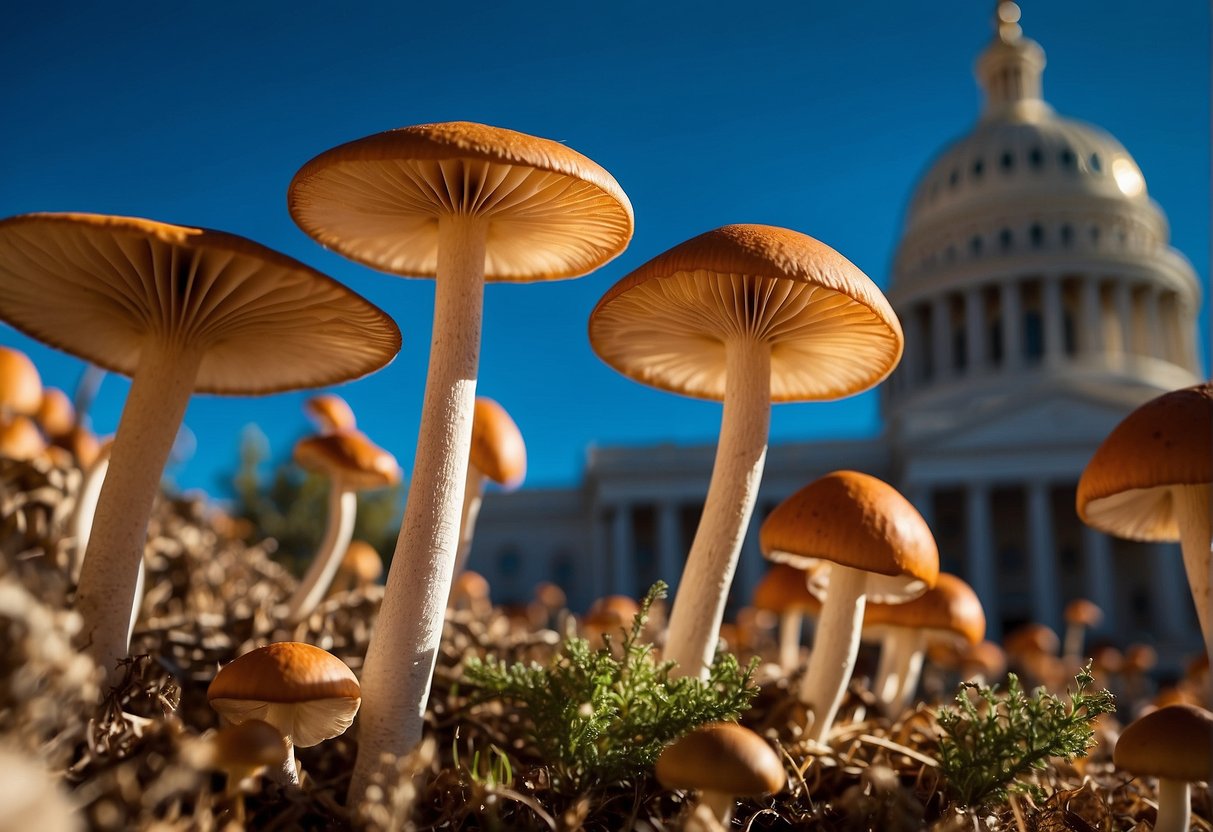
As you explore the legal status of psychedelic mushrooms in Arizona, it’s essential to understand the legislative movements that have recently taken shape. This includes specific bills and proposals, as well as the effects of House Bill 2486.
Recent Bills and Proposals
In Arizona, lawmakers have been considering various legislative efforts to address the decriminalization and potential legalization of psychedelic mushrooms. These efforts signal a shift in how psychedelic substances are perceived within the legal framework. It is important for you to note that legislation related to psychedelics is a complex and evolving area, reflecting changing societal attitudes.
House Bill 2486 and Its Implications
House Bill 2486, introduced by Arizona lawmakers, including Representative Kevin Payne, was brought before the House Military Affairs and Public Safety Committee. Although not directly related to psychedelic mushrooms, the discourse surrounding this bill reflects a growing consideration of substance-related laws. Representative Jennifer Longdon, among other lawmakers, has contributed to the debates indicating bipartisan support within the legislature for examining substance decriminalization. This bill, among others, can be seen as a potential stepping stone towards broader discussions on the classification and legalization paths for substances such as psychedelic mushrooms.
Medical Research on Psilocybin

Medical research on psilocybin has gained significant momentum in recent years, probing its potential for treating a range of mental health conditions such as depression, anxiety, PTSD, and addiction. High-quality clinical trials and studies are pivotal to understanding its therapeutic benefits and safety profile.
Clinical Trials and Studies
Clinical trials play a critical role in advancing our understanding of psilocybin mushrooms. Present evidence from clinical trials suggests psilocybin may offer medicinal use through psychotherapy bolstering for treating depression, anxiety, PTSD, and trauma, particularly in veterans. Funding and grants have increased, enabling researchers to continue this promising exploration into its potential therapeutic benefits. Studies are examining both natural psilocybin and synthetic psilocybin to ascertain their efficacy and safety in controlled settings.
Notable Findings:
- Psilocybin may reduce symptoms of depression and existential anxiety.
- In controlled settings, psilocybin has been used in conjunction with psychotherapy to enhance treatment outcomes.
Scottsdale Research Institute Initiatives
The Scottsdale Research Institute has been at the forefront of conducting rigorous research into psychedelics. Their initiatives delve into how psilocybin therapy can be integrated safely into treatments for mental health conditions. The institute’s work is instrumental in building a robust body of evidence supporting the therapeutic use of psilocybin, particularly with regard to trauma and post-traumatic stress disorder in combat veterans. The Research Institute’s efforts contribute to the evolving narrative within the healthcare sector regarding psychedelic therapy as a credible option for conditions poorly addressed by conventional medications.
Research Highlights:
- The institute investigates the benefits for veterans, addressing the intricacies of trauma and PTSD.
- Efforts to secure funding for expansive trials are key to their mission to validate psilocybin’s therapeutic benefits.
Comparison with Other States and Substances
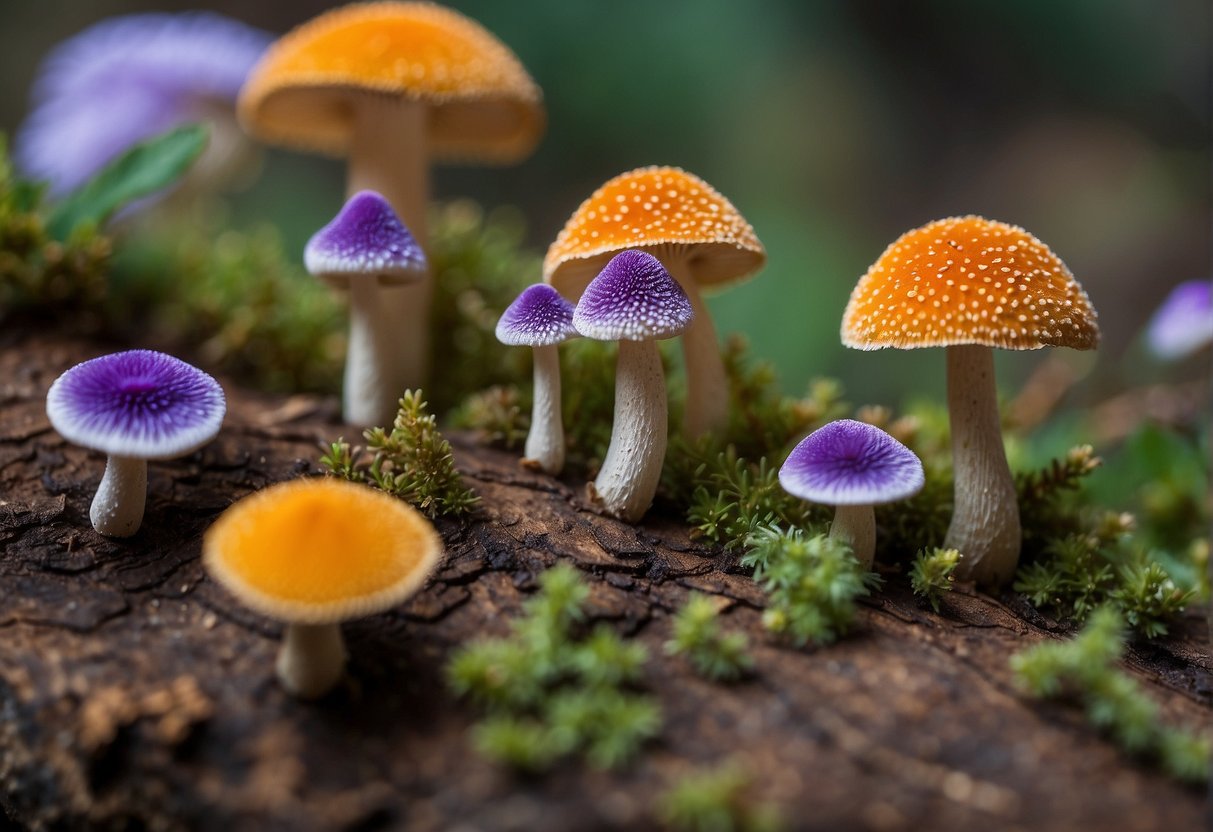
In the changing landscape of drug policy, you may find varying degrees of legality for substances like psilocybin mushrooms across the United States, with a handful of states taking more progressive steps compared to others.
Psychedelics Legislation in Colorado and Oregon
Colorado and Oregon are at the forefront of legal reform regarding psychedelics. Colorado has shown a liberal stance by decriminalizing psilocybin mushrooms. In contrast, Oregon has gone a step further; not only has it decriminalized the possession of small amounts of drugs like marijuana, LSD, MDMA, ketamine, and psilocybin, but it’s also created a program for the legal administration of psilocybin in therapeutic settings. This contrasts with the stricter schedules found in other states.
Arizona vs. National Trends in Psychedelic Policy
In comparison, Arizona maintains tighter regulations. Despite the decriminalization trends in states like Oregon and Colorado, possession of psychedelics such as LSD, MDMA (commonly known as ecstasy or molly), and psilocybin mushrooms can lead to significant legal consequences in Arizona. To your interest, Arizona’s policies more closely align with nationwide federal drug law, categorizing these substances alongside cocaine and heroin, which indicates no distinction between “soft” and “hard” drugs in terms of the legal system.
Initiatives elsewhere, as in New York and Missouri, are campaigning for a more progressive approach to psychedelics, which may influence the future of Arizona’s legislation. However, as of now, any possession of such substances in Arizona could result in severe legal penalties.
Social Impacts and Public Opinion
Your understanding of the complex relationship between psychedelic mushrooms and Arizona’s legal framework can be enriched by exploring the social implications and public perspectives. In Arizona, the discussion around psychedelic mushrooms often involves the experiences of frontline workers and the broader community attitudes towards these substances.
Impact on Frontline Workers and First Responders
First responders and frontline healthcare workers in Arizona have encountered situations involving psychedelic mushrooms, which may influence their views on their legality. Anecdotal evidence suggests that while some see potential therapeutic benefits, especially for veterans and underserved communities struggling with conditions like PTSD, there are concerns about public safety and preparedness to handle mushroom-related incidents.
Community Perspectives and Attitudes
In the community, public opinion on psychedelic mushrooms varies. There’s a growing conversation fueled by figures like Physician Sue Sisley and Rep. Kevin Payne, who have highlighted both potential medical uses and legal challenges. Although some in the community view these substances as offering hope for certain treatments, others remain skeptical, worrying about possible social impact.
Remember, your grasp on the social facets and public sentiment surrounding psychedelic mushrooms in Arizona can shape how you interpret the current dialogue and legal landscape concerning these substances.
Legal Consequences of Psilocybin Use
Understanding the legal consequences of psilocybin use in Arizona is crucial. Despite recent discussions around the medicinal potential of psychedelics, psilocybin remains classified as an illegal substance under both federal and Arizona law.
Criminal Records and Repercussions
If you are caught in possession of psilocybin mushrooms, you risk a criminal record in Arizona. The consequences for possessing an illegal substance can include imprisonment, fines, and long-term ramifications such as difficulty finding employment or housing due to a criminal record. In Arizona, psilocybin is listed as a Schedule I drug under the dangerous drugs category, and the severity of penalties can vary based on the quantity in your possession and any prior offenses.
Manufacture and Distribution Legalities
The manufacture and sale of psilocybin mushrooms carry severe penalties. Law enforcement agencies in Arizona actively pursue individuals involved in the manufacture and distribution of psilocybin. Engaging in these activities will likely lead to arrest and charges that come with significant prison time and fines. If you are found to be operating a distribution network or growing psilocybin mushrooms with the intent to distribute, you could face hefty penalties, reflecting the state’s strict stance against the illegal drug trade.
Psychedelic Mushrooms for Personal Use
In Arizona, the landscape of legalization of psychedelic mushrooms, which includes natural mushrooms with psilocybin, is complex. This section focuses on the distinctions between decriminalization and the legality of personal use, as well as the risks associated with recreational use and potential for abuse.
Decriminalization vs. Personal Use
Decriminalization and personal use of psychedelic mushrooms are not synonymous. Decriminalization might reduce the legal penalties associated with possession of natural mushrooms, but it does not equate to legalization. In Arizona, possessing spores that could potentially grow psychedelic mushrooms is not illegal; however, cultivating or using them to grow mushrooms can be punishable under state law. While you may find mushroom spores for sale, this does not imply that you can legally use them to cultivate psychedelic mushrooms for personal use.
Risk of Recreational Use and Abuse
While discussing recreational use of psychedelic mushrooms, understand that these substances vary widely in potency and can lead to unpredictable effects. Instances of recreational use over the past decades show both therapeutic potential and risks of addiction and abuse. Psychedelic mushrooms, when used recreationally without proper guidance or medical supervision, may pose risks including adverse psychological reactions. It’s important for you to be aware of these risks, as misuse can lead to serious consequences.
Frequently Asked Questions
This section addresses common inquiries regarding the legal status of psilocybin mushrooms in Arizona, including regulations, recent legislation, and consequences of use.
What are the regulations surrounding the possession of psilocybin mushrooms in Arizona?
In Arizona, psilocybin mushrooms are classified as a Schedule I controlled substance, making their possession illegal. This classification indicates that these substances have a high potential for abuse and are not accepted for medical use.
Has there been any recent legislation in Arizona addressing the use of psychedelic mushrooms?
To date, there has been no legislation passed in Arizona that changes the legal status of psychedelic mushrooms. They remain illegal under both state and federal law.
Are there any exceptions that allow for the use of psilocybin mushrooms in Arizona, such as religious or medical use?
Arizona law does not currently recognize any exceptions for the religious or medical use of psilocybin mushrooms. Their use, in any context, is against state law.
In the context of Arizona law, what are the potential legal consequences for using or distributing psychedelic mushrooms?
The legal consequences for using or distributing psychedelic mushrooms in Arizona can be severe, including fines and imprisonment. The exact penalties depend on the amount in possession and the intent of possession or distribution.
Is there ongoing research or medicinal trials involving psychedelic mushrooms taking place in Arizona?
While there has been growing interest in the medicinal potential of psychedelic mushrooms, information on specific research or trials in Arizona is not readily available. It is important to check with local universities or research institutions for up-to-date details.
How does Arizona’s stance on psychedelic mushrooms compare to other states where they have been decriminalized or legalized for medical use?
Arizona maintains a stricter stance on psychedelic mushrooms compared to some other states, such as Oregon, where psilocybin has been legalized for therapeutic use, and cities like Denver, where psilocybin possession has been decriminalized.

